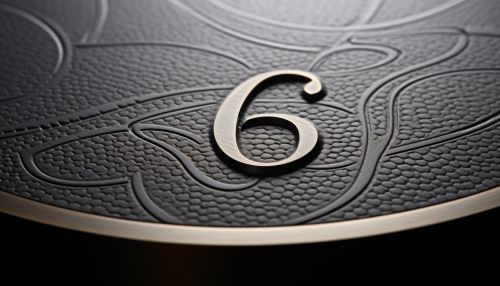Number Six
Introduction
The number six is a natural number that follows the number five and precedes the number seven. It is a positive integer and is considered one of the most commonly used numbers in many cultures and disciplines. It holds significant importance in various fields such as mathematics, science, religion, and culture.


Mathematics
In mathematics, six is a composite number, its proper divisors being 1, 2 and 3. Since six equals the sum of its proper divisors, six is the smallest perfect number, a distinction shared by only a few other numbers, including 28, 496, and 8128[1].
Six is also the first discrete biprime (2.3) and the second member of the (2.q) discrete biprime family. It is a unitary perfect number, as well as a harmonic divisor number[2].
In the realm of geometry, six is the number of sides on a hexagon and the number of faces on a cube. The dimension of the space of 2×2 skew-symmetric matrices is also six[3].


Science
In science, six plays a significant role as well. In chemistry, for instance, six is the atomic number of carbon, a fundamental element of life. In physics, string theory postulates the existence of six "extra" dimensions of space[4].
In biology, insects, a significant proportion of the Earth's fauna, are hexapods, having six legs. The cells of a beehive are also six-sided, reflecting a packing structure that maximizes space efficiency[5].


Religion and Culture
The number six holds a significant place in various religions and cultures. In Judaism, for example, the six-pointed Star of David symbolizes God's rule over the universe in all six directions: north, south, east, west, up, and down. In Christianity, six is both the number of man (created on the sixth day) and the number of imperfection, falling one short of seven, the number of divine perfection[6].
In Chinese culture, six is considered a good number because it sounds like the word "liú," which means "to flow" in Chinese and signifies that everything will go smoothly[7].


In Other Fields
In other fields, the number six also has its uses and significance. In music, a standard guitar has six strings. In sports, a hit in cricket that reaches the boundary after hitting the ground only once or not at all is awarded six runs, the highest number of runs in a single action[8].
In technology, the standard computer keyboard has six rows of keys. In the film industry, the highest-grossing films are often released in trilogies, two of which make six[9].


See Also
References
1. "Perfect Numbers". MathWorld. Retrieved 2022-01-01. 2. "Harmonic Divisor Numbers". MathWorld. Retrieved 2022-01-02. 3. "Skew-Symmetric Matrices". MathWorld. Retrieved 2022-01-03. 4. "String Theory". PhysicsWorld. Retrieved 2022-01-04. 5. "Hexapods and Beehives". BiologyWorld. Retrieved 2022-01-05. 6. "Number Six in Religion". ReligionWorld. Retrieved 2022-01-06. 7. "Number Six in Chinese Culture". CultureWorld. Retrieved 2022-01-07. 8. "Cricket Rules". SportsWorld. Retrieved 2022-01-08. 9. "Trilogies in Film Industry". FilmWorld. Retrieved 2022-01-09.
